Search Results for: Bears
Skip to resultsCan’t find what you’re looking for? Visit our FAQ page.
6,903 results for: Bears
-
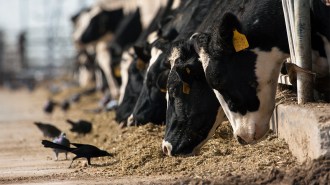 Health & Medicine
Health & MedicineBird flu has infected a person after spreading to cows. Here’s what to know
H5N1 has wreaked havoc on birds around the globe and occasionally made the jump to mammals, including cows. The risk to people remains low.
-
 Environment
Environment‘The High Seas’ tells of the many ways humans are laying claim to the ocean
The book explains how the race for ocean resources from fish to ores to new medicines — the Blue Acceleration — is playing out.
-
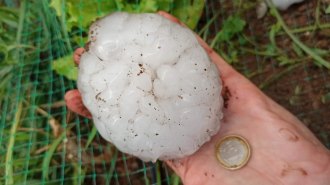 Climate
ClimateA ruinous hailstorm in Spain may have been supercharged by warming seas
Giant hail that pummeled northeast Spain in August 2022 could not have formed without climate change, computer simulations suggest.
-
 Space
SpaceHow a sugar acid crucial for life could have formed in interstellar clouds
Computer calculations and lab experiments have revealed a possible mechanism for the creation of glyceric acid, which has been seen in meteorites.
-
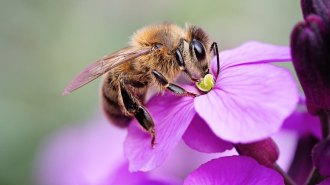 Life
LifeA vaccine for bees has an unexpected effect
Honeybees vaccinated against a bacterial disease were also protected from a viral disease.
-
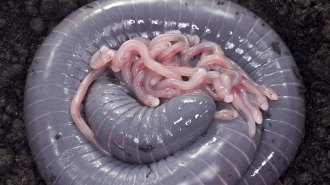 Life
LifeThis is the first egg-laying amphibian found to feed its babies ‘milk’
Similar to mammals, these ringed caecilians make a nutrient-rich milk-like fluid to feed their mewling hatchlings up to six times a day.
By Jake Buehler -
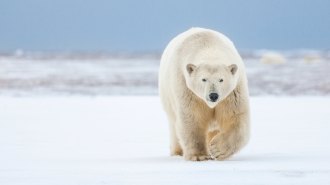 Materials Science
Materials ScienceA fiber inspired by polar bears traps heat as well as down feathers do
Scientists took a cue from polar bear fur to turn an ultralight insulating material into knittable thread.
By Jude Coleman -
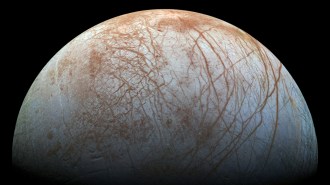 Planetary Science
Planetary ScienceOur picture of habitability on Europa, a top contender for hosting life, is changing
The moon of Jupiter is considered one of the most promising places to look for life, but its subsurface ocean may be less habitable than once thought.
By Nikk Ogasa -
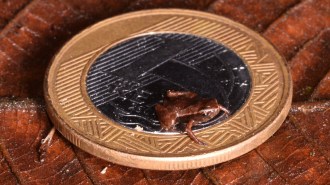 Animals
AnimalsThe Brazilian flea toad may be the world’s smallest vertebrate
Brazilian flea toads are neither a flea nor a toad, but they are almost flea-sized. The frogs are small enough to fit on a pinkie fingernail.
-
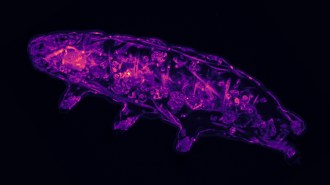 Chemistry
ChemistryHere’s how tardigrades go into suspended animation
A new study offers more clues about the role of oxidation in signaling transitions between alive and mostly dead in tardigrades.
-
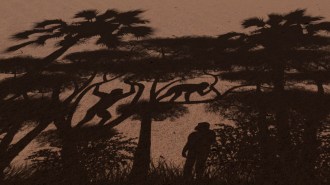 Anthropology
Anthropology50 years ago, evidence showed that an extinct human ancestor walked upright
Fossil finds have since pushed back the ability of hominids to walk on two legs by millions of years.
-
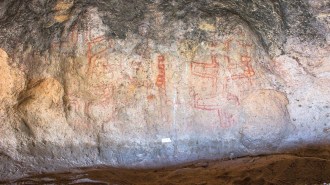 Archaeology
ArchaeologyThese South American cave paintings reveal a surprisingly old tradition
Radiocarbon dates point to an artistic design practice that began in Patagonia almost 8,200 years ago, several millennia earlier than previously recorded.
By Bruce Bower